- Author Antonio Harrison harrison@cultureoeuvre.com.
- Public 2023-12-16 07:44.
- Last modified 2025-01-22 21:44.
Alexander Fadeev donated the novels "Defeat" and "Young Guard" to Soviet literature. For many years he headed the Writers' Union and headed the editorial board of the Literaturnaya Gazeta. But despite the great talent and recognition of readers, there were black stripes in his life.
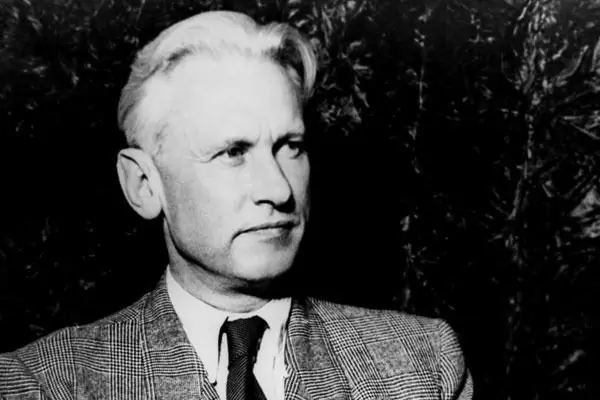
early years
Alexander was born on December 24, 1901 in the town of Kimry, Tver region. His parents were professionally engaged in revolutionary activities. All three children were brought up by the mother and father in respect for work. Sasha learned to read and write early and surprised his family when he demonstrated his own handwritten stories. His favorite authors were Jack London and Fenimore Cooper. A few years later, the family moved to the village of Chuguevka, Primorsky Territory, where the boy spent his childhood.
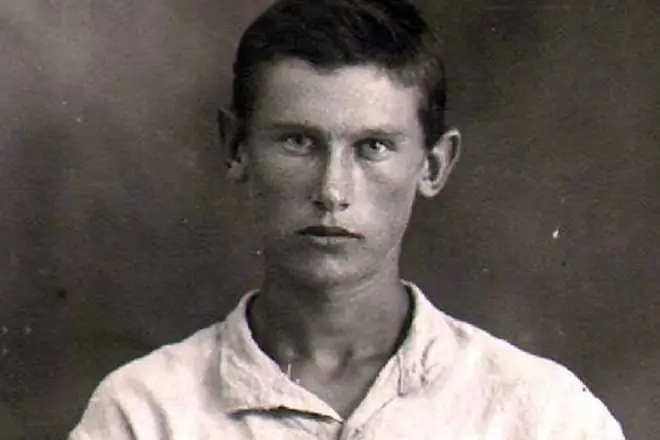
Revolutionary
In 1912, Alexander entered the Commercial School of the city of Vladivostok. Knowledge was given to him easily, on the course he was considered the best. His debut opuses were published in the student newspaper, some of them even received prizes. But the young man was more carried away by revolutionary ideas. The Bolshevik underground gave him various assignments, Alexander was engaged in agitation and received the pseudonym Bulyga from his fellow party members. Without completing his studies, in 1919 Fadeev joined the detachment of red partisans. During the battles in the Far East, he became a regimental commissar and was wounded in one of the battles.
After the Civil War, Fadeev decided to get an education, chose the Moscow Mining Academy. During this period, he took part in the work of the 10th Party Congress and suppressed the uprising in Kronstadt. After a second injury and a long recovery, he decided to settle in Moscow.
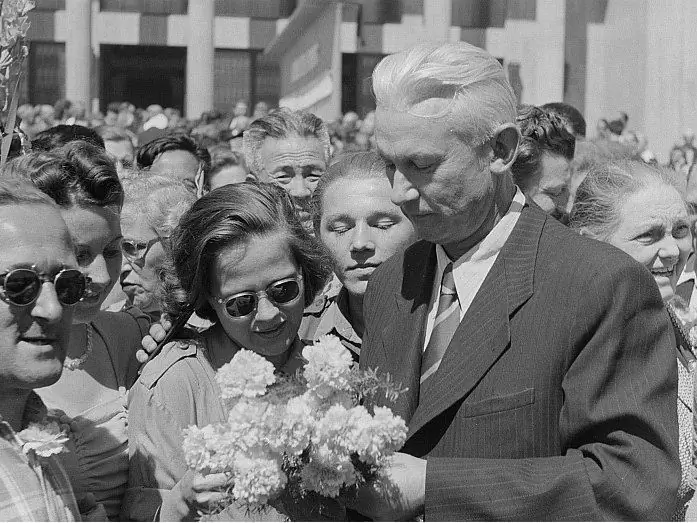
Writer
The debut story "Spill" was published in 1923, but did not find a serious response from readers. A happier fate was prepared for the novel "The Defeat". The work was published in 1926 and brought the writer unprecedented success. At this moment, he made a firm decision to devote himself to literary activity, he was recognized by his colleagues in the Association of Proletarian Writers. The first book was followed by the novel The Last of Udege. The action of both works takes place in the Ussuri region during the years of the establishment of the power of the Soviets.
The writer began to create the book, which brought all-Union fame, in 1945. The novel "Young Guard" tells about a group of young underground workers who were fighting in the fascist-occupied Krasnodon. The book appeared in a year - in record time. I must say that the first version of the novel was criticized by Stalin himself, in his opinion, the role of the party was not vividly reflected. The author took into account the remarks and in 1951 the second edition of the novel was born, on this occasion Fadeev joked with grief: "I am remaking Young Guard into the old one …" The book became a classic of Soviet literature, a film of the same name was shot on it.
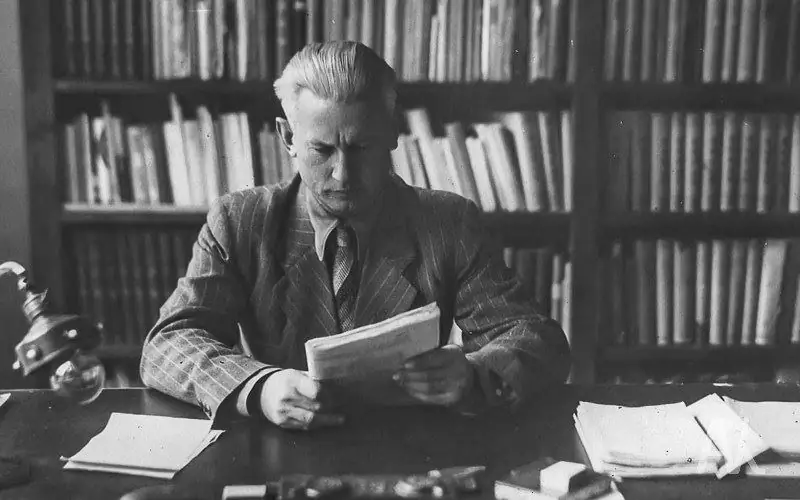
Public figure
Fadeev devoted many years to work in the Union of Writers of the country. For several years he headed the editorial board of the Literaturnaya Gazeta, initiated the creation of the October magazine. Quite a lot of essays on the literature of socialist realism came out from under his pen. In wartime, the writer, as a military commander, consecrated events right from the front line.
The head of the Russian Union of Writers was the conductor of government decisions in relation to cultural figures. In 1946, with his participation, Zoshchenko and Akhmatov were practically destroyed as writers, in 1949 the writer acted as a fighter against cosmopolitanism. But at the same time, he was sincerely worried about the fate of his colleagues: he transferred money to those left without a livelihood and showed sincere interest. Forced splitting led to depression, she led to insomnia and addiction to alcohol.
During the Khrushchev Thaw, Fadeev's activities were criticized. At the XX Party Congress, Mikhail Sholokhov sharply spoke out against his colleague, calling him guilty of repressions of Soviet writers. Fadeev lost his membership in the Central Committee of the Communist Party. After that, the internal conflict reached a critical point.
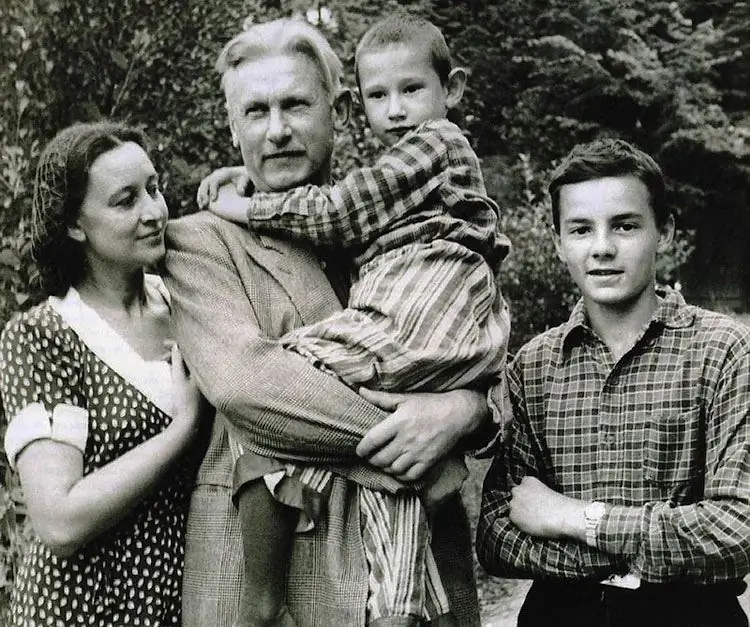
Personal life
Alexander's first wife was the writer Valeria Gerasimova, the sister of the famous film director. Her fate turned out to be difficult: once in exile, she returned home only after the death of the “leader of the peoples”. Angelina Stepanova, an artist of theater and cinema, became the new wife of the writer. The couple raised two children - Alexander and Mikhail. It is noteworthy that Angelina gave birth to the eldest child shortly after their wedding, but her husband adopted the boy and gave him his last name. The younger Fadeev followed in his mother's footsteps and chose an acting profession. In addition to sons, in 1943, Fadeev had an illegitimate daughter, Maria, who became a continuation of his love for Margarita Aliger.
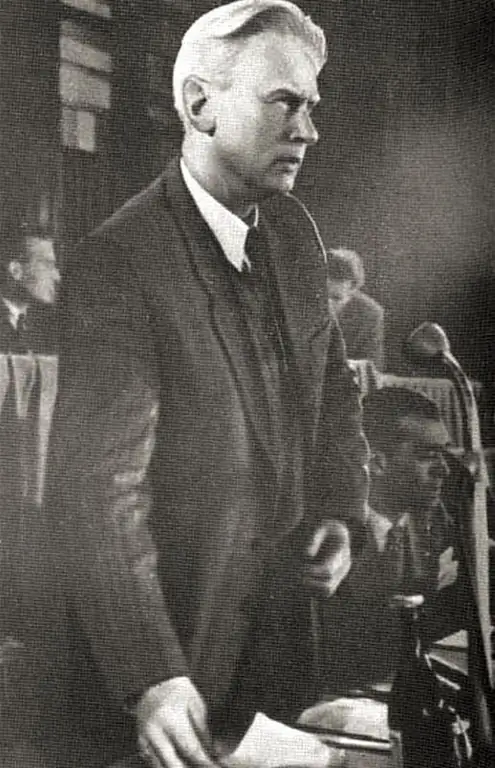
Leaving life
The end of the writer's biography was very tragic. On May 13, 1956, he shot himself with a revolver at his dacha in Peredelkino. The initial cause of death was called alcoholism, but decades later, a letter from Fadeev appeared, written just before his death, in which he said that he “cannot live like this any longer,” because the “lies and slander” that fell upon him deprive him of the meaning of his existence as a writer …






